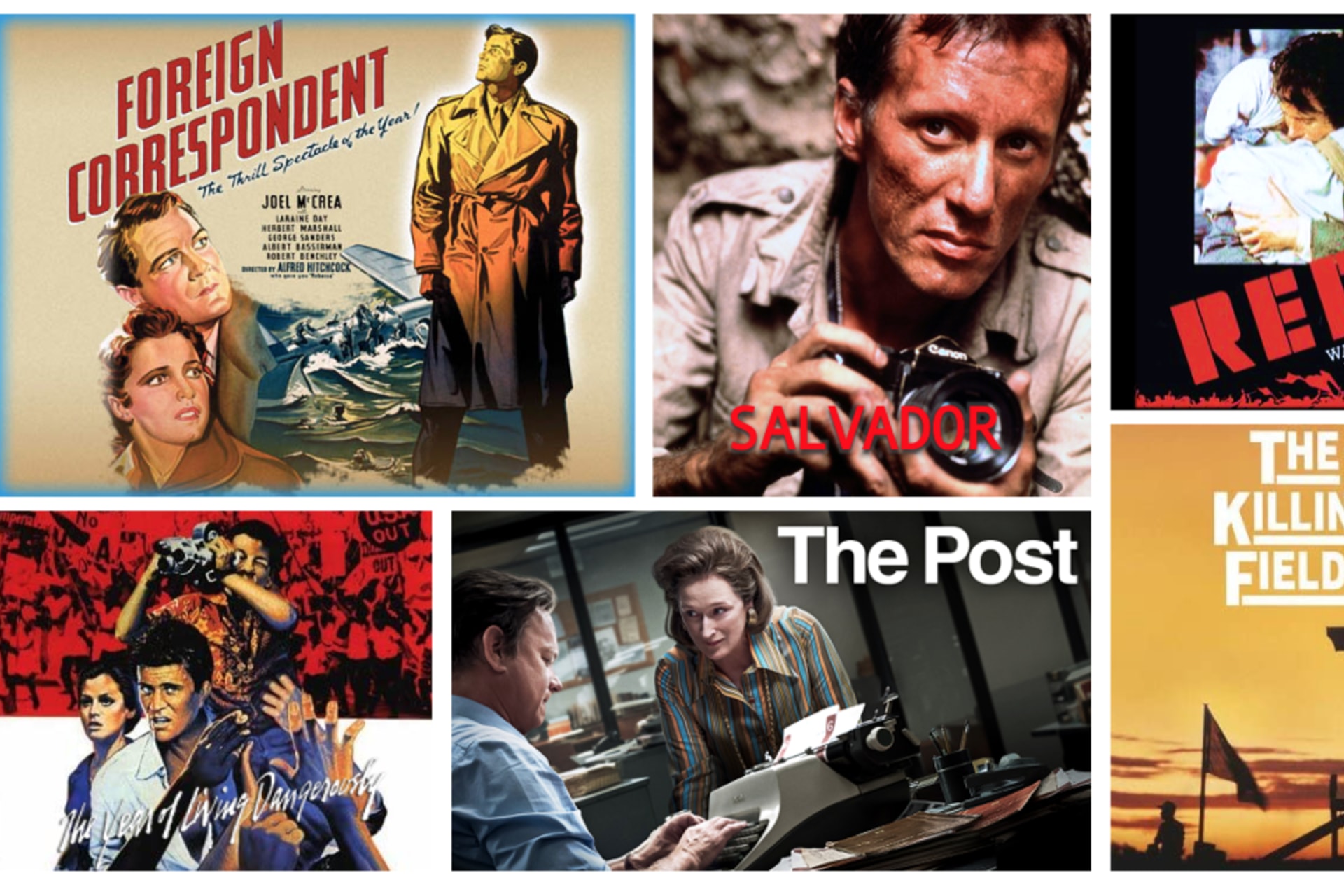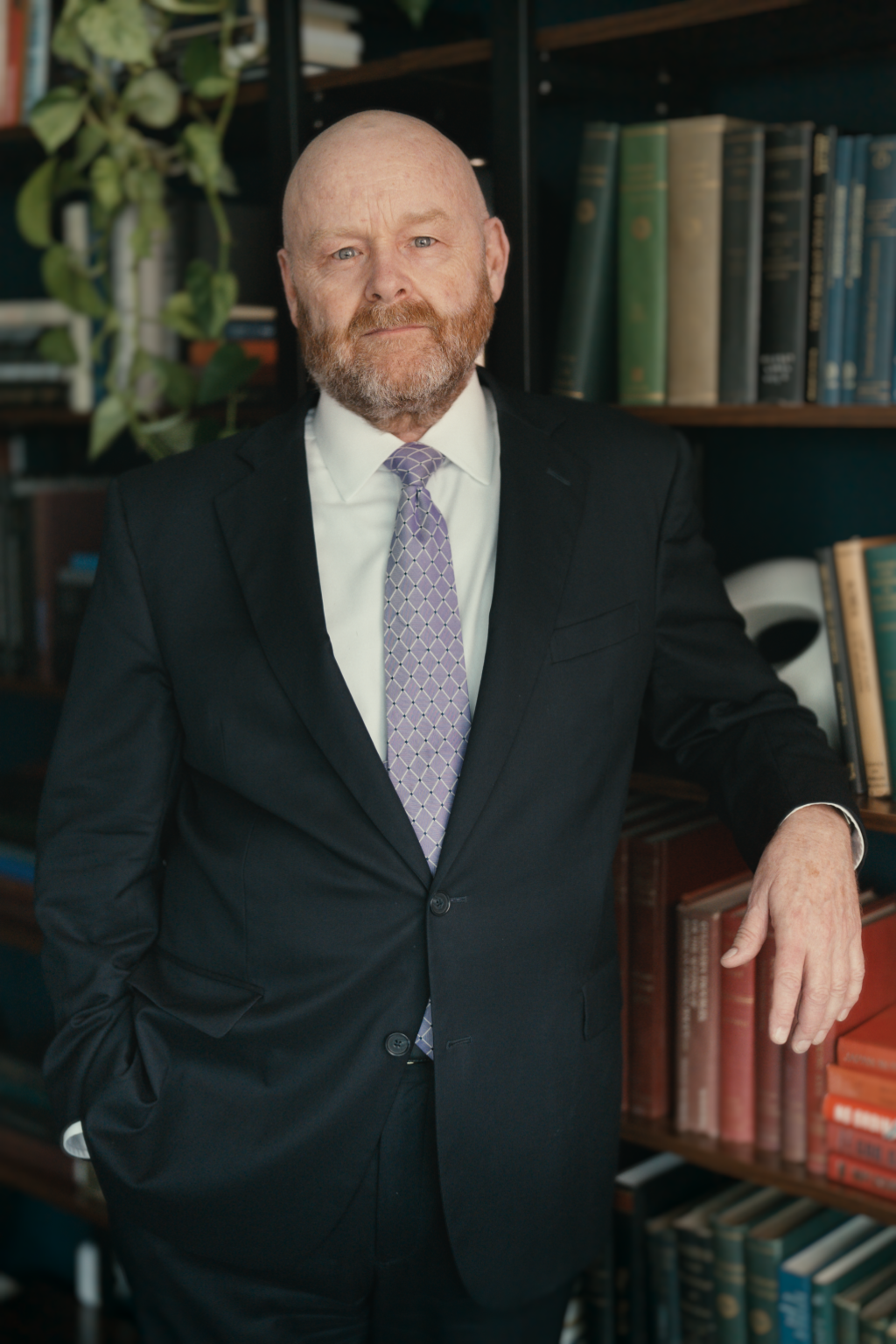Five Foreign-Policy Movies Worth Watching About Journalists
Each Friday this summer, we suggest foreign-policy-themed movies worth watching. This week: films that feature journalists.

By experts and staff
- Published
Experts
![]() By James M. LindsayMary and David Boies Distinguished Senior Fellow in U.S. Foreign Policy
By James M. LindsayMary and David Boies Distinguished Senior Fellow in U.S. Foreign Policy
By
- Margaret GachResearch Associate, U.S. Foreign Policy
It’s Friday, so it’s time for another list of foreign-policy-themed-movie recommendations. This week, we’re looking at movies that feature journalists covering world events.
Here are the rules we follow in making our picks. We have five recommendations, plus a bonus pick from one of our colleagues who knows a thing or two about journalism.
Foreign Correspondent (1940). When American crime reporter Johnny Jones (Joel McCrea) is sent to Europe on the eve of World War II, he is unexpectedly swept up in a conspiracy to assassinate a Dutch diplomat. What follows from director Alfred Hitchcock is a fast-paced thriller packed with plot-twists, action, and romance. Filming wrapped in May 1940. But as Nazi Germany advanced toward Britain, Hitchcock filmed a new final scene in July with Jones encouraging Americans to pay attention as London is bombed in the background. Foreign Correspondent opened in August, just a week before the first German bombs landed on London. Nazi propaganda master Joseph Goebbels noted it would undoubtedly “make a certain impression upon the broad masses of the people in enemy countries.” Foreign Correspondent was nominated for six Oscars, including Best Picture, but lost to Hitchcock’s other 1940 film Rebecca. You can watch Foreign Correspondent on Amazon Prime or the Criterion Channel.
Reds (1981). The Soviet invasion of Afghanistan and Ronald Reagan’s election made Hollywood reluctant to move ahead with Warren Beatty’s passion project about the Russian Revolution and birth of American communism. The star of movies like Bonnie and Clyde and Shampoo had for more than a decade wanted to chronicle the life of John Reed, a journalist and socialist who wrote a firsthand account of the 1917 revolution, Ten Days That Shook the World. Supporting Beatty’s role as writer, director, producer, and lead actor are Diane Keaton and Jack Nicholson. Beatty’s persistence to get Reed’s story on the silver screen paid off with twelve Oscar nominations and three wins. Beatty won the Oscar for Best Director but lost Best Picture to Chariots of Fire in an upset win. You can watch Reds on Amazon Prime, Google Play, or YouTube.
Salvador (1986). Salvador is inspired by the experiences of American photojournalist Richard Boyle during El Salvador’s civil war. Unable to find employment because of his drinking and attitude problems, Boyle (James Woods) travels to El Salvador in 1980 with his disc-jockey friend Doctor Rock (Jim Belushi) hoping to pick up freelance work amid the growing conflict between the right-wing Salvadoran government, which is supported by the United States, and leftist rebels. Boyle discovers that the situation is more brutal than he bargained for as he is caught between the two sides. Director Oliver Stone realistically depicts the civil war’s relentless violence, including bloody street battles and the assassination of Archbishop Oscar Romero. Woods received an Oscar nomination for his portrayal of Boyle, who was also nominated for the script that he cowrote with Stone. You can watch Salvador on Amazon Prime or iTunes.
The Killing Fields (1984). Based on the true stories of Cambodian photojournalist Dith Pran and American reporter Sydney Schanberg, The Killing Fields depicts the Khmer Rouge’s brutal takeover of Cambodia. Pran (Haing S. Ngor) and Schanberg (Sam Waterson) are separated during the fall of Phnom Penh in 1975. For four years, Schanberg desperately searches for his friend who is held in prison camps while the regime kills millions of Cambodians. The film, directed by Roland Joffé, was nominated for seven Oscars, including Best Picture, and won three. Ngor, in his debut acting performance as Pran, survived Khmer Rouge prison camps himself and became the first and so far only person of Asian descent to win the Oscar for Best Supporting Actor. The British Film Institute ranked The Killing Fields the one-hundredth greatest British film of the twentieth century. You can find it on Amazon Prime, Google Play, or YouTube.
The Post (2017). Tom Hanks and Meryl Streep star as the editor and publisher of the Washington Post during its 1971 showdown with the White House over the publication of the Pentagon Papers. When the Post and New York Times receive classified reports showing that the U.S. government has long misled the public about the Vietnam War, the Nixon administration challenges their right to publish the leaked material. Although we know what the Supreme Court ultimately decided, director Steven Spielberg engagingly depicts the “bedlam”—as Bradlee later described it—of the Post’s acquisition, investigation, and eventual publication of the papers. The Post is a timely reflection on the relationship between the press and state under the First Amendment. It was nominated for Best Picture, and Streep received an Oscar nod for her performance as Katharine Graham, the Post’s first woman publisher. You can watch The Post on Amazon Prime, Google Play, or YouTube.
This week we asked our colleague Carla Anne Robbins to make the bonus movie pick. Carla knows a lot about the challenges journalists face, the risks they run, and the traps they need to avoid. Before joining the Council as an adjunct senior fellow, she served as the deputy editorial page editor for the New York Times and chief diplomatic correspondent for the Wall Street Journal and started out in the business reporting in Central America. Carla chose:
The Year of Living Dangerously (1982). Directed by Peter Weir and based on Christopher Koch’s 1978 novel of the same name, The Year of Living Dangerously follows the relationships among an Australian radio-TV reporter (Mel Gibson), his cameraman (Linda Hunt), and an attaché at the British embassy (Sigourney Weaver) amidst the 1965 coup that forced Indonesian President Sukarno from power. Hunt won the Oscar for Best Supporting Actress for her portrayal of the perpetual outsider cameraman Billy Kwan, who tries to make Gibson’s character see what he sees. Carla says: “Aside from the original sin at its core—reporters should never sleep with their sources, especially if they are spooks—it captures the experience of a first-time foreign correspondent: His early bewilderment and anxiety when he arrives in Jakarta without a source, the high at his first scoop, the sense of invulnerability verging on callousness—and the recklessness—that can come with being a ‘protected’ Western reporter (until we become the targets), and the constant reliance on far more vulnerable local hires who will be left behind when the story moves on. I won’t spoil the end. After watching the movie again this week, my husband (also a long-time reporter) and I are still discussing whether we would have made the same decisions.” You can watch The Year of Living Dangerously on Amazon Prime, Google Play, or YouTube.
August 6 and August 9 mark seventy-five years since the United States dropped atomic bombs on Hiroshima and Nagasaki. So next week we will be recommending movies that examine the threat of nuclear war.
Check out our other foreign-policy-themed movie recommendations:
- Ten More Foreign-Policy Movies Worth Watching
- Five Anti-War Movies Worth Watching
- Five Movies About Foreign Intrigue Worth Watching
- Five Movies About World War II Worth Watching
- Five Movies Worth Watching About the Threat of Nuclear War
- Five Movies About Revolts, Rebellions, and Revolutions Worth Watching
- Five Foreign-Policy Comedies Worth Watching
- Five POW Movies Worth Watching
- Five Movie Biographies Worth Watching
- Five Foreign-Policy Movies with Women in the Lead
- Five Foreign-Policy Satires Worth Watching
